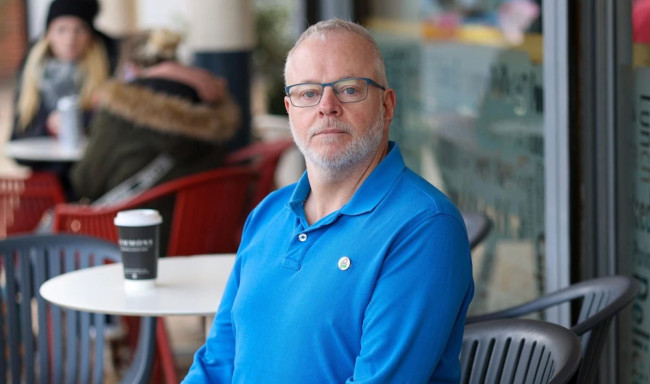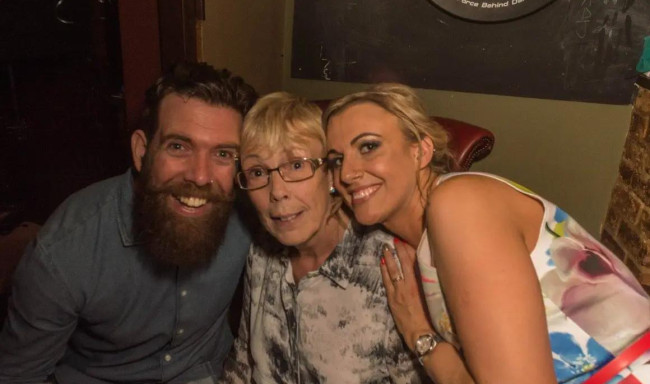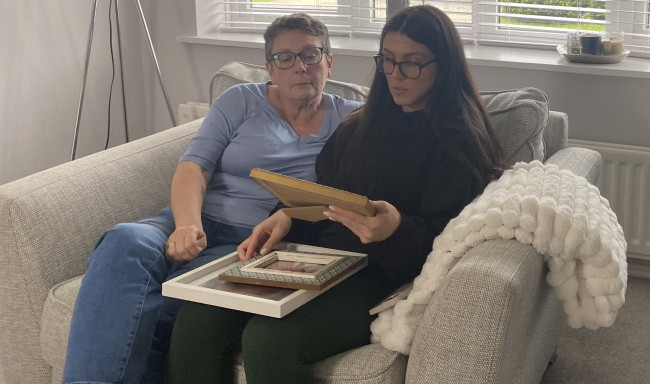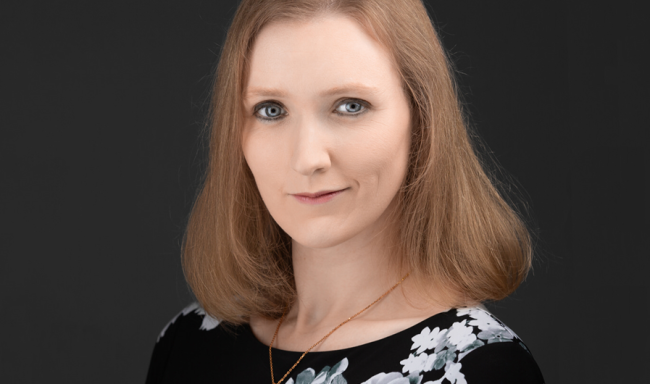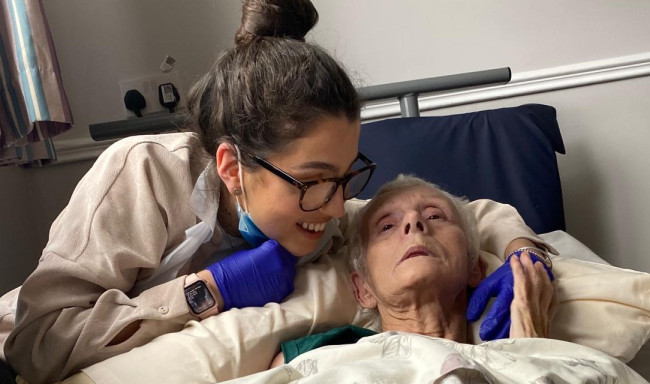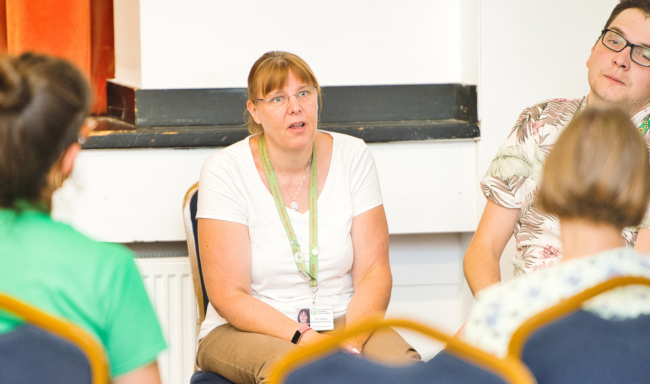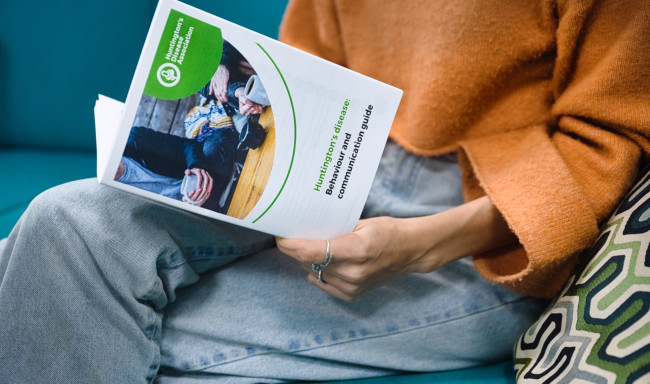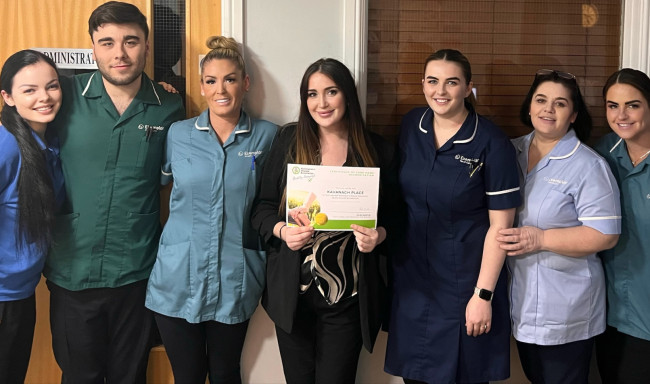Guilt, regret, and being “good enough”
Sarah is a clinical psychologist and university lecturer, and she has been working and researching with people with Huntington’s for around ten years. She is currently working with the Huntington's Disease Association to deliver Acceptance and Commitment Therapy-based groups for people affected by Huntington’s.
In this blog, she reflects on how people supporting someone with Huntington’s often feel guilt and regret (even when they really shouldn’t), and some of the ways that might help to cope with these difficult feelings.
One of the worries that people often bring to therapy is the idea that it’s “too late”. Too late to solve problems; too late to repair damaged relationships; too late to become the person we wanted to be. “Too late” can become a painful shadow falling over an entire life.
“Too late” is (as anyone reading this will likely already know) something that can feature heavily in a life affected by Huntington’s. For the person who has it, it may become too late to achieve dreams or to follow paths in life that gradually become inaccessible. In any life, there is never enough time to do everything we want – but if one has Huntington’s, that time is unfairly shortened even further. For family members of people who have Huntington’s, there can be changed relationships and lost opportunities that it feels too late to regain. In time, there is the ultimate “too late” when a loved one passes – and while that’s not confined to Huntington’s, all the other “too lates” can make this final one feel particularly brutal.
As a therapist, “too late” is tough to hear from a client. It’s tough because I feel that pain with them, and I know myself the pain of knowing something has been lost forever (we all have our “too lates”, after all). But it also gives me hope, because someone who is telling you it’s “too late” has brought that feeling to therapy, and that usually means they are still hoping you can tell them how to take the pain away. They haven’t given up. I will say it every time: coming to therapy is an act of bravery and confrontation. It is an act of strength.
I’m certain that the people I see for therapy will be tired of hearing how “I don’t have a magic wand”. It is still something that I say early, up front, and often. People frequently come to therapy hoping (understandably) for a miracle: a Dr Freud who can perform some mysterious magic in a dark book-lined office to dissolve their pain, his enchantments enabled by them offering up their deepest secrets. I think therapy is inevitably something of a disappointment for many at first, and not only because I lack Freud’s trademark beard and comfortable sofa.
Therapy is a slower and more difficult kind of magic, and both sides have to work together to find a path up out of the dark.
So since I can’t do quick magic and miracles, how do my client and I work to relieve the very real pain of “too late” together? Let me offer an anonymous example, stitched together from lots of conversations over the years, and not representative of anyone in particular. My example is a family member, who did their best to care for their loved one with Huntington’s. They supported them to stay at home for as long as possible, as things got increasingly difficult; they persisted well past the point where they might quite reasonably have waved the white flag; they persisted possibly past the point when it was really the best thing for either of them... but it was the choice that felt right. My client wanted to support their loved one, and, knowing their wish to stay at home, they did their best to enable it.
Eventually this imaginary client’s loved one finally had to go into a nursing home, where they could be cared for safely as their needs increased. My client visited daily and did everything possible to ensure their loved one was safe and happy. They did the best they could. I have met many people around this time in the Huntington’s journey, when they were consumed with doubt and grief. Did they do everything they could? Is it right that they allowed their loved one to go to a nursing home? Have they ultimately been selfish, putting themselves before their loved one?
Guilt is perhaps the most insidious “symptom” among people who care for someone with Huntington’s – it’s always lurking, and leaps to the fore with the slightest (or no) provocation.
When I meet someone who is having these sorts of thoughts, I often talk about another famous psychoanalyst (although this one doesn’t have a beard): Donald Winnicott. Winnicott mostly wrote about parenting and child development; he was a paediatrician as well as a psychoanalyst. And, in my opinion at least, the most important thing he wrote about was the idea that being a “good enough” parent, that doing the best you can and it being imperfect, is absolutely fine. I could write at length about why this is important in child development, and I would happily write extensively about how this idea of “good enough” has been extended to psychologists and counsellors in the therapy room. But that’s not my focus here; I want to talk about what this means in context of Huntington’s.
The concept of “good enough” has passed into the popular consciousness to some extent, and in those conversations, it isn’t quite used in the way Winnicott originally meant it. But it’s still a useful idea, that we can only be “good enough”, and that’s in itself “good enough” because we have done our best. This fits well with the ideas that underpin my preferred therapeutic approach (Acceptance and Commitment Therapy, which I’ve written about before, and I’ll talk about more in a future blog). What I might start to do with my imaginary guilt-ridden client is explore the decisions they made and the reasons they made them, and we would usually find they had truly done the best they could for as long as they could.
We might talk about what “perfect” (in their opinion) would look like, and whether it was ever realistically achievable. We would take that guilt, that shame, that idea that it’s “too late”, and we would drag it all into the light of day and examine it ruthlessly. And as so often in life, we find that those terrible things look smaller in the light.
That’s not to say that the person then walks out happy, after I’ve waved a magic wand (the one I don’t have) and set them free from their chains. It’s one step to face things head-on, with the support of a compassionate therapist, and diminish those things as much as possible through logic. But the pain will still be there, and the “too late” hasn’t changed. So next it’s about learning to separate from the pain, to acknowledge its existence and the distress it causes, and to focus on doing the things that are most important and fulfilling going forward – finding ways to be self-compassionate, to forgive any perceived imperfections in what we’ve done, and to recognise that we have been “good enough”.
My take-home message for today: We can’t always get things right, we rarely (if ever) do them perfectly, but that’s ok. None of us have to be perfect – thank goodness – and we can only do the best we can with the tools and time we have. It doesn’t mean we don’t wish for a magic wand; I still do every time someone comes to me in pain, and since I don’t have one, we have to work on things the slow way. But we can only do our best together, and good enough is good enough.
Thank you to Dr Sarah Gunn for this blog.
Please visit our events page to see if there are any Acceptance and commitment Therapy courses coming up.

